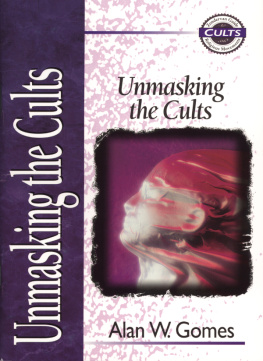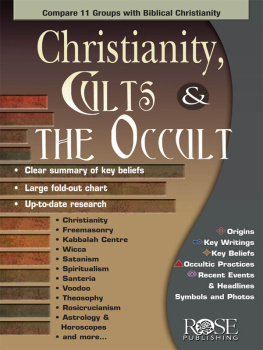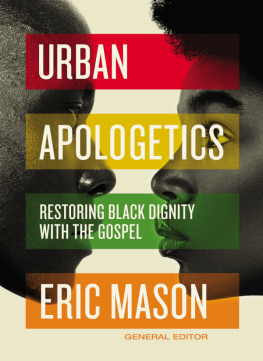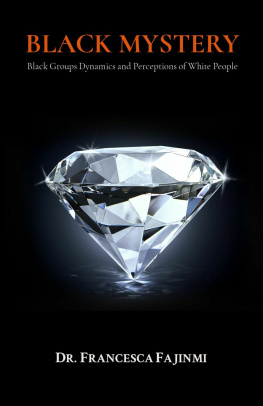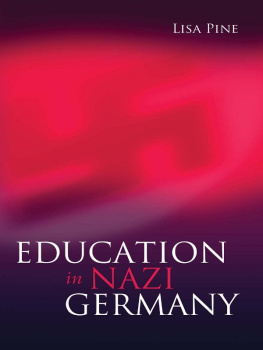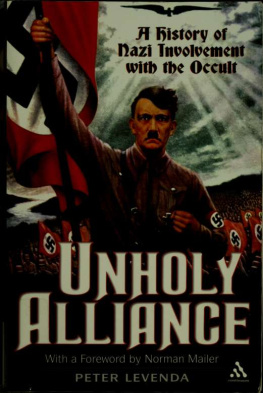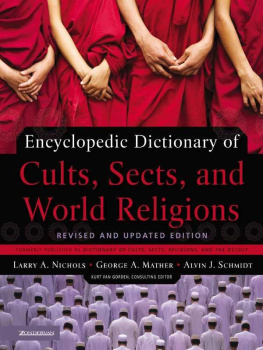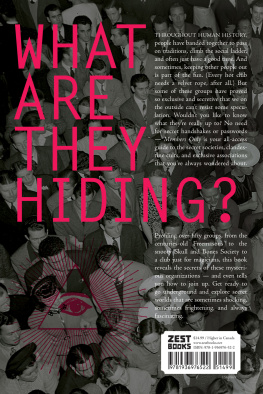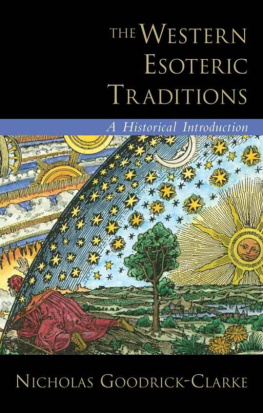BLACK SUN
NICHOLAS GOODRICK-CLARKE
BLACK SUN
Aryan Cults, Esoteric Nazism and the Politics of Identity

NEW YORK UNIVERSITY PRESS
New York and London
2002 by Nicholas Goodrick-Clarke
All rights reserved
Nicholas Goodrick-Clarke has asserted his right to be identified
as the author of this work.
Library of Congress Cataloging-in-Publication Data
Goodrick-Clarke, Nicholas.
Black sun : Aryan cults, esoteric Nazism and the politics of identity /
Nicholas Goodrick-Clarke.
p. cm.
Includes index.
ISBN 0814731244 (cloth: alk. paper)
1. Neo-Nazism. 2. Occultism. I. Title.
JC481 .G567 2001
320.533dc21 2001004429
New York University Press books are printed on acid-free paper, and their binding materials are chosen for strength and durability.
Manufactured in the United States of America
10 9 8 7 6 5 4 3 2 1
Contents
Introduction
THE RELIGIOUS AND MYTHIC elements of German National Socialism often made the Third Reich resemble a cult in power. The pageantry of the Nazi rallies and their quasi-liturgical nature were matched by the extraordinary fervor of the huge crowds in attendance. Most participants were caught up in an intense atmosphere of collective excitement and self-surrender. Hitlers undoubted charisma and the assiduous development and cultivation of the Fhrerkult since the earliest years of the movement were crucial factors in the construction of Nazi religiosity. Huge congregations, banners, sacred flames, processions, a style of popular and radical preaching, prayers-and-responses, memorials and funeral marches were all essential props for the cult of race and nation, the mission of Aryan Germany and victory over her enemies. The messianic figure of Adolf Hitler, the savior of Germany, towered over the entire project.
National Socialist ideology was also deeply imbued with ideas drawn from radical religious imagination. The belief in a Jewish world conspiracy, ostensibly backed by the notorious invention The Protocols of the Elders of Zion, provided the image of a demonic enemy. Nazi anti-Semitism was rooted in this apocalyptic demonology, which blamed the Jews for all ills, including liberalism, communism, the corruption of morals, and the downfall of a traditional world. The notion of national regeneration was also presented in an apocalyptic spirit: only the destruction of the Jews could guarantee the salvation of Germany in a racially pure millennium.Alfred Rosenberg, the chief Nazi Party ideologue, was an early publicist of the Protocols, establishing their core status in Nazi philosophy during the early 1920s. Dietrich Eckart, Hitlers mentor in Munich, held a gnostic-dualist view of the Jews and their antagonistic role in German national life. Hitlers own belief in a Jewish world conspiracy remained a life-long conviction, finding terrible fulfillment in the Holocaust.
In an earlier book, The Occult Roots of Nazism, I traced these ideas of racial election, demonology and millennium among Austrian German nationalists prior to the First World War. That study was intended to show how quasi-religious and even occult ideas could bolster German identity in response to the perceived threats of liberalism, laissez-faire capitalism, and the rise of subject nationalities at the beginning of the last century. At this time, large-scale industry, new metropolitan cities, the growth of capitalist finance and organized labor were all perceived as threats by traditional groups. These vlkisch Ariosophists offered a defensive ideology of Aryan German folk identity as a panacea for unwelcome, disruptive challenges to traditional status, custom and political authority. Against the rise of anthropology and eugenics, these sectarians embraced ideas of race and stigmatized the Jews as the supposed agents and beneficiaries of liberalism and modernity. Their occult notions of racial superiority combined with anti-Semitism and millenarian myths of national regeneration to find ultimate expression in the ideology of the National Socialist movement.
Multicultural societies face a similar challenge today. In 1900 the white European races constituted some 35 percent of world population. Owing to declining birthrates among whites in advanced industrial nations, coupled with the explosion of Third World population due to improved medicine, sanitation and increasing industrialization, that figure is now just under 10 percent in global terms. Guest workers, immigrants, ecomomic migrants, refugees and asylum seekers all represent major population flows, bringing the population surplus of developing countries into lands traditionally settled by white races of European descent. These advanced industrial economies are absorbing ever larger levels of immigration, and their political commitment to multiracialism is now an article of faith. Today, the United States and most European nations are facing a demographic shift against their historic native stocks. The resulting issue of white identity recapitulates the dilemma of Austrian Germans fearing a loss of influence in the old Habsburg Empire.
Black Sun examines the survival and revival of Aryan racial ideas in response to the challenges of the postwar world. More than half a century after the defeat and disgrace of Nazism and fascism, the far right is again challenging the liberal order of the Western democracies for political space. Radical ideologies are feeding on the threats of economic globalization, affirmative action and Third World immigration. The book explores the farther shores of right-wing extremist ideology. Aryan cults, aristocratic paganism, anti-Semitic demonology, Eastern religion and the occult supply underground beliefs to individuals and groups who fear a loss of status, cultural tradition and identity in the emergent multicultural societies of the United States and Europe.
The scene is set with a historical review of neo-Nazism in the United States and Britain. Here Nazism revived as an extremist response to communism, liberalism and more especially the desegregation of African Americans and colored immigrants. In their quest for a radical counterideology, American and British neo-Nazis championed Hitler and National Socialism against liberalism and the presence of ethnic minorities. Their underground publications eulogize National Socialism as a racial policy to guarantee the global preeminence of the white race for all time. However, despite their overriding concern with colored races, neo-Nazi ideology still identified the Jews as the demonic adversary of the white Aryan peoples. Here the Jews are regarded as the architects of a multiracial world order, which supposedly dissolves all nations, traditions and loyalties, before the final accomplishment of Jewish world conquest.
The survival of anti-Semitism in a modern racist discourse predominantly concerned with opposition to ethnic groups highlights the enduring demonology of Nazism. Like Gnostics cut off from the transcendent deity in a benighted world, American and British neo-Nazis claim that Hitler and Nazism offer the only hope of racial survival to white nations populated with growing ethnic minorities. Anti-Semitism acts as a manichaean dualist heresy dividing the world into forces for good and evil. Millenarian racial cleansing and the demonology of a Jewish world conspiracy are the defining moments of such neo-Nazi religiosity.
From the 1950s to the 1970s, neo-fascist and neo-Nazi groups essentially imitated the past with uniformed cadres, swastika flags and marches. The fringe political parties remained the preserve of fanatics, and recruitment was strictly limited to those who admired fascism or were convinced anti-Semites. Even if German nationalism was transformed into a global ideology of white racism, the historical and political experience of Nazi Germany remained the dominant model for emulation. This historic allegiance was the hallmark of the neo-Nazi cults associated with George Lincoln Rockwell and Colin Jordan, together with their successors and followers in the postwar Anglo-American world. Hostages to the memory of German National Socialism, the Anglo-American neo-Nazis remained trapped in a nostalgic cult of Hitler worship, while universal condemnation of the Third Reich and the Holocaust blocked any prospect of political success.
Next page

